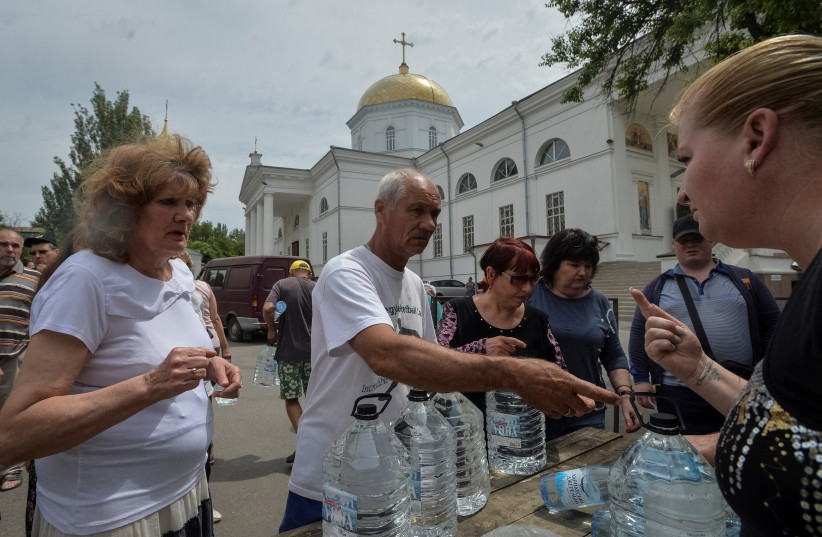The collapse of the Kakhovka Dam on Tuesday has disrupted water supplies and may sweep away and disperse explosive mines, the United Kingdom and Ukraine said in assessments of the disaster on Sunday.
Communities on both the Ukrainian and Russian-controlled sides in the flooded areas will face limited access to safe water, the UK Defense Ministry said in a Sunday morning intelligence update. Lack of access to clean water can result in sanitation issues and increased risk of the spread of disease.
Areas impacted by the lack of fresh water include the northern Crimean Peninsula and southern Kherson. The ministry said flooding disrupted the peninsula’s main source of fresh water, the North Crimean Canal.
The canal "draws water from the Kakhovka Reservoir, from an inlet higher than the bed of the reservoir. The water level in the reservoir had likely dropped below the level of the inlet by 09 June 2023 and water will soon stop flowing to Crimea," said the UK Defense Ministry. "Russian authorities will likely meet the immediate water requirements of the population using reservoirs, water rationing, drilling new wells, and delivering bottled water from Russia."

Addressing the crisis of clean water availability in Crimea
The Ukrainian National Resistance Center claimed on Saturday that Russia lacked a clear plan to address the lack of fresh water in Crimea, and was trying to limit reporting on the issue to prevent a panic. Undersecretary-General Martin Griffiths told the Associated Press on Friday that 700,000 people in the affected regions could be left without safe drinking water.
Another consequence of the mass flooding is the dispersion of live land mines laid by both sides.
The Resistance Center said that Russian forces had been laying minefields along the east bank of the Dnieper River with river mines, which may have been untethered and washed away by the water pressure. Citizens were urged to be alert and report any mines to authorities.
On Saturday, Ukrainian President Volodymyr Zelensky said in an address that 3,000 people had been evacuated in the Kherson and Mykolaiv oblasts but stressed that they were limited in the aid they could provide to those in occupied territory. He urged international organizations to aid the victims.
"Russian terrorists are doing everything to make the victims of the disaster as many as possible. Russian shelling continues – even at evacuation points. Russia does not provide any real help to the people in the flooded areas – not for the sake of propaganda, but for the sake of the people," said Zelensky. "The Russian state and the Russian leadership should bear separate, fair, and strict responsibility for all this."
Both Russia and Ukraine accuse one another of destroying the dam and causing the flooding, which came as both sides anticipated major offensives from the other.
